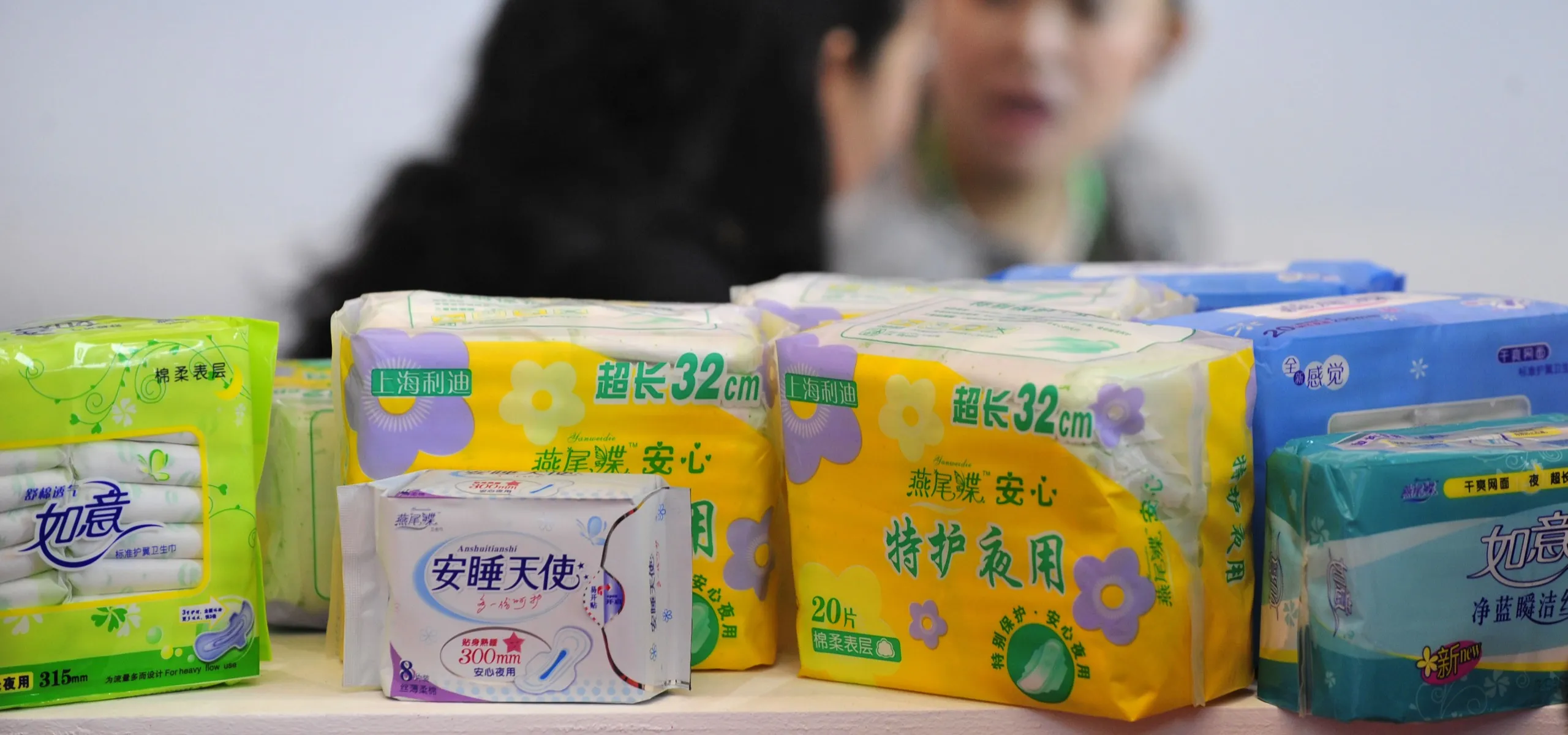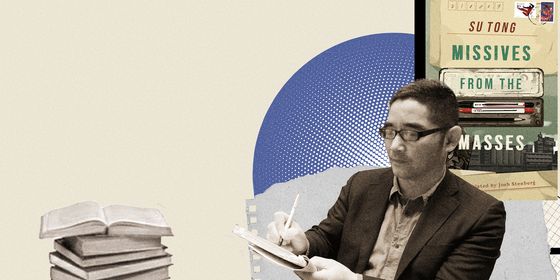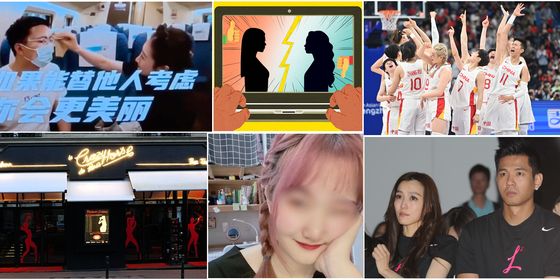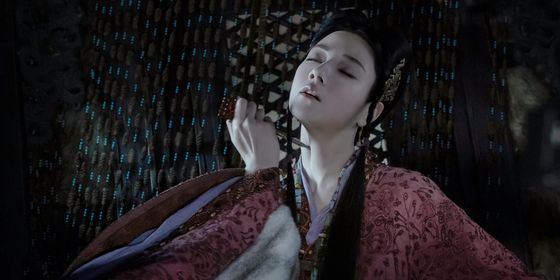Against euphemisms like “Big Aunties” and a culture of shame, young Chinese women are speaking up for menstruation
“I would rather die,” my friend sobbed, telling me how her “Big Auntie” made her feel depressed. At age 13, I looked at her pale face and genuinely thought that a dear relative had passed away. But as more and more girls around me started whispering to each other about their “Aunties,” I grew puzzled.
After I sat through the most blush-inducing session of my biology class in middle school, I finally learned the truth: 大姨妈 (dàyímā, Big Auntie) was a euphemism for menstruation. In China, the menstrual period is often referred to as 例假 (lìjià, routine break), 亲戚 (qīnqi, family relative), 那个 (nàge, that thing), or even 倒霉 (dǎoméi, bad luck) by some people of older generations, instead of its proper terminology, 月经 (yuèjīng).
“Auntie” is one of the most common euphemisms. Its origin is now unverifiable, but its popularity is hard to miss, even on the big screen: In the 1999 blockbuster film King of Comedy directed by Stephen Chow, a character played by beloved actress Cecilia Cheung says, “My Auntie came visit me.”
Though dayima might seem as innocuous as “Aunt Flow” in English, the euphemism is just part of various taboos around menstruation in China, which young women have become increasingly critical against.
Gracy Xu, a 26-year-old woman in Beijing who prefers not to use her real name, claims that her period would immediately stop whenever she eats cold food. “I thought it was coincidental. But the same thing just literally happened every time.” According to folk beliefs rooted in traditional Chinese medicine, coldness could block one’s qi (energy flow) and blood flow on one’s period. Therefore, many women believe they should refrain from swimming, taking cold showers, or eating ice cream during these few days of the month. Instead, brown sugar and ginger, classified as “warm” foods in traditional medicine, are believed to help relieve the discomfort during periods.
Some other taboos, however, are more indicative of entrenched stigma around menstruation, not just in China but in many other cultures around the world. For example, a common but now contested folk belief dictates that women’s bodies during periods are too impure to carry out worshiping rituals in Buddhist temples.
The shame toward menstruation extends to menstrual products. Many Chinese women grew up to understand an unspoken signal—if a female classmate or colleague squeezes by you with a frown and a whisper of “you know...” it’s time to give them a pad for an emergency. The next step is to slide the pads discreetly into their sleeve, as fast as a spy sneaks weapons.
On Chinese social media app Xiaohongshu (RED), a popular post shows a sign in a public bathroom that says it offers free sanitary pads, but the term “sanitary pad” was replaced by a funny nickname: “large-size adhesive plaster (大号创口贴).” According to many Xiaohongshu users, when they purchase pads from stores, the cashier often puts them in an opaque black plastic bags separate from the rest of the purchase.
This March, the black plastic bag sparked a trending debate on Weibo. “Why would anyone advertise their period?” wrote some netizens who supported the move, arguing that the bag is a caring service to women who are too shy to make their cycles public.
Many others, however, respond with a tough stance and find the bag to be evidence of “period shaming,” which they deem disrespectful to women’s bodies. “Do you also feel too shy to display your toilet paper?” They argued that menstrual products should not be treated differently from other items catering to biological needs.
With rising awareness, the use of language is also changing. For example, Ningbo Lishe International Airport won a round of applause from female users on Xiaohongshu simply for using the term “menstruation” on a bathroom sign.













